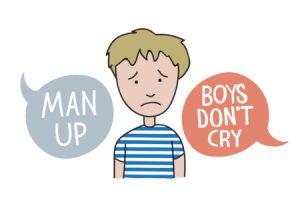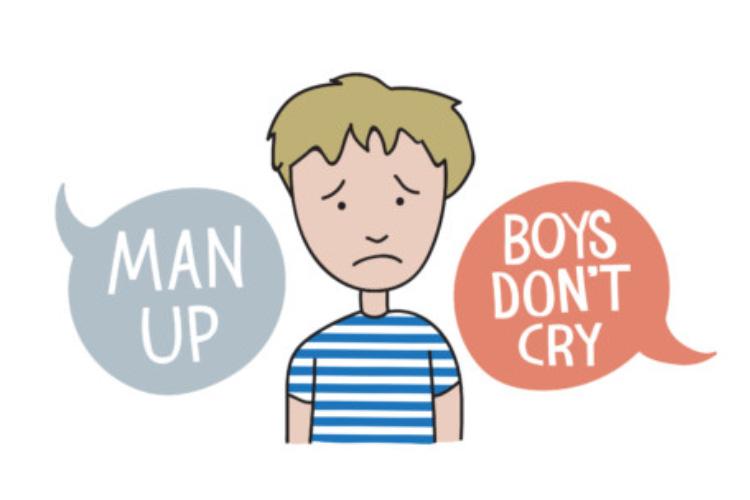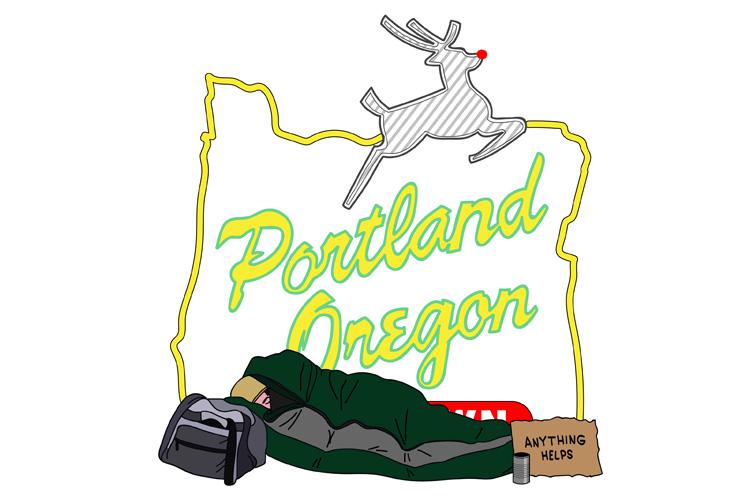
“How old is your daughter?” The man jokingly asked my mom as she sat by the pool. I was standing in the shallow end, my blond hair hanging down past my ears. I looked around, embarrassed, realizing he was talking about me.
I was only 8 years old and was already being told what it meant to be a boy.
It didn’t end there. I remember how “boys don’t cry” was a common sentiment growing up. I was ridiculed by my male peers for wearing nail polish when I was in elementary school. I was scared to cry or show any emotion because of the stigma.
So, I changed the way I presented myself. I cut my hair short, started playing video games and memorized players on sports teams – all in an effort to conform to what society told me it meant to be a man.
Reflecting on these memories has made the dangers of gender constructs even more apparent to me. Why did I feel ashamed for being presumed as feminine?
Male-identifying people like me are taught that the basis of masculinity is defined by rigid rules – suppression of emotions, dominance and aggression, to name a few. The psychological term for this is hypermasculinity.
Men are shamed for showing feelings or having “feminine” characteristics. We oftentimes aren’t taught proper coping mechanisms for dealing with emotions, and on top of that, aggression is normalized. This can have devastating effects.
In the United States, according to the National Coalition of Domestic Violence, 1 in 5 women will be sexually assaulted in their lifetimes compared to 1 in 71 men. And about 90 percent of mass shootings are committed by men.
Many boys at Grant feel the effects of hypermasculinity. “My family, they have this high standard of me playing sports, like a normal boy,” says Grant junior Jaylen Butler, who is gay. “I just tell them, at the end of the day I’m not changing.”
The concept of hypermasculinity has existed for centuries, embodied in white, heterosexual, cisgender and middle to upper class men.
Historically, that standard of masculinity has subjugated black men to emasculation and violence, and forced queer and transgender men to hide in fear of being targeted as well. And often in gay communities, attractiveness is associated with masculinity, determined by a man’s ability to “pass” as straight by suppressing any “feminine” characteristics.

In media and culture, boys and men are consumed by a hegemonic viewpoint of masculinity. Just as women are compared to unrealistic beauty standards, I’ve seen plenty of commercials and advertisements that depict muscular, athletic men who desire money, cars and success while lusting after women.
As a result, children pick up on gender roles at a young age.
Grant senior Aubrey Pledger says these notions can be dangerous. “Those lessons that we’re taught as kids definitely translate into relationships,” she says. “I think that hypermasculinity is the product of really fragile egos because there is so much pressure being put on men. And so when their ego is hurt, then they can lash out in really bad ways.”
This pressure can have harmful effects on men, most prominently anger and aggression, and can lead to undiagnosed depression, domestic abuse and social isolation.
Derrais Carter, assistant professor of Black Studies at Portland State University, says the constructs of masculinity “focus too heavily on aggression, power, and violence and encourage the oppression of others. When this becomes the culturally accepted standard for how men are socialized, then it discourages many other expressions of masculinity.”
Carter also acknowledges that standards differ based on race and economic class.
We have been told for too long that the suppression of emotion is normal, that femininity means weakness, that domestic abuse is the woman’s fault, that aggression and dominance are just male traits and that “boys will be boys.”
We have to change this narrative.
As men we have an obligation to ourselves and others to break down these barriers. Embrace our emotions. Cry. Step out of the boxes put in place for us and allow ourselves to access the many parts of who we are, which will help not just men, but everyone around us.
One afternoon last fall, I was sitting in my backyard with my family and some friends. The adults and I talked while the kids, including my 4-year-old brother and 7-year-old sister played in the yard. The boys pretended to shoot each other with guns, while the girls jumped rope. “Boys will be boys,” one of the parents said.
I felt disheartened knowing things haven’t changed much since I was a kid. I want to live in a world where my little brother feels comfortable expressing himself in any way he chooses. I don’t feel the need to conform, and I choose not to live by society’s rules of who I should be.
Do you? ◆






























![Artita-Guerrero knows that she will always remember her mom, but as she grows older her memories become less pronounced. “It’s the smaller things I wish I could remember but can’t,” she says.“So many other thing have happened in my life that I’m kinda like covering...[her death].”](https://grantmagazine.com/wp-content/uploads/2017/02/DSC_5574-copy-copy.jpg)



